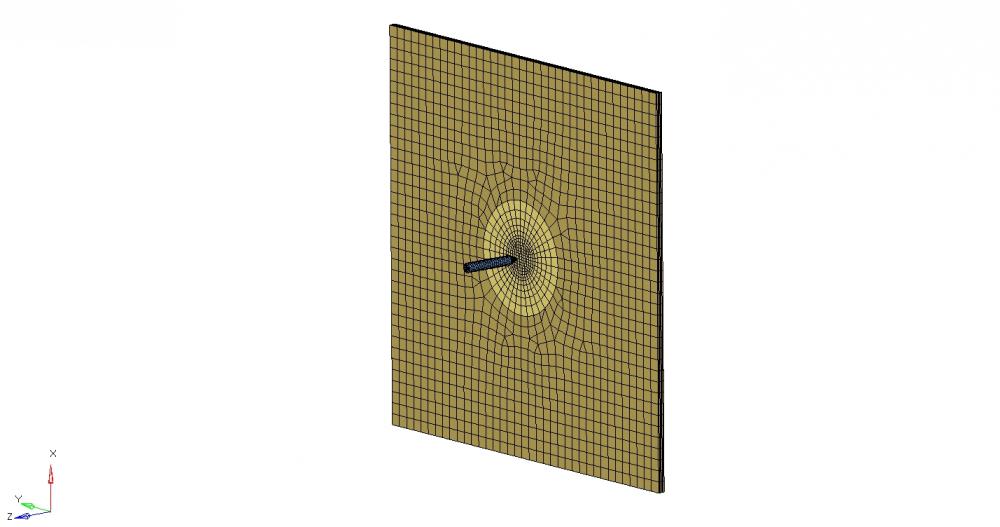Dear all,
I'm facing with the simulation of the impact of a bullet on a steel plate. The bullet travels at 710 m/s and the plate is 6.3 mm thick. The bullet and the plate are simulated with solid element (BRICK). P14_SOLID is used for the solid and the johnson-cook material model (M2) is used for the steel plate and the bullet. The interface is a type7 vith bullet nodes as slave and plate as master.
Radioss return to me the error 'ZERO OR NEGATIVE VOLUME FOR 3D-ELEMENT'.
in PSOLID definition i've used both the Isolid option 1 and 24 and the Ismstr option 2 for large deformations but the error still remain. Does anyone could tell me something?
<?xml version="1.0" encoding="UTF-8"?>
Unable to find an attachment - read this blog